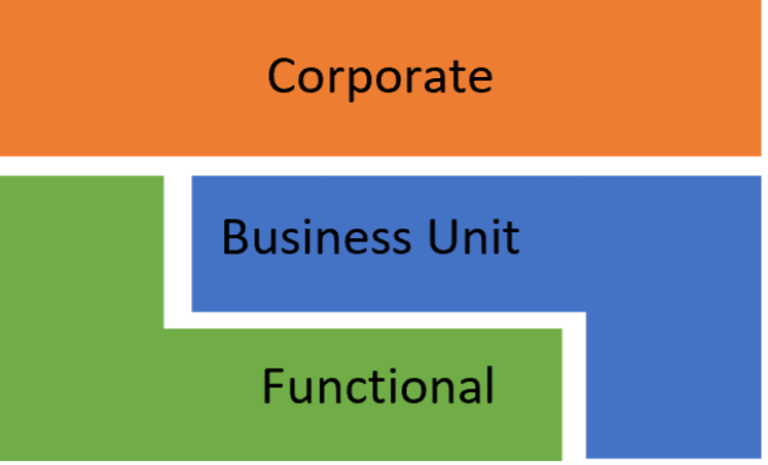Emergent strategies in disruptive times
Joseph A Schumpeter popularized the term “creative destruction” to describe how new innovations replace older innovations and thereby challenge existing business models. The most recent example is the pace with which AI is challenging established businesses, forcing them to adapt to survive.

When rapid technological developments occur, like we see now with AI, it challenges companies to formulate and execute new strategic visions. While it is always imperative to dedicate enough time to strategic considerations, this is even more true when innovations and new technologies impact your business model.
At Bouvet, we believe that a focus on emergent, functional strategies could be one of the keys for companies to survive and succeed in such a time of accelerating pace of change and technological disruption.
1. New requirements for strategy
In what McKinsey & Company call The Great Acceleration¹ , the pace of change in our economy is higher than ever before. The question facing companies is how to navigate in markets with such an unprecedented volatility. In Bouvet, we think that the key factors are strategy, processes, and digitization.
At the highest level, strategy is a plan to achieve some defined goals. But different contexts require different approaches to strategy. The classical approach is to see strategy as a formulation and planning exercise where top management in a yearly strategy process lays out plans and budgets for the upcoming strategy period. Other approaches focus more on a company’s position in the marketplace, as in the words of Michael Porter who wrote that “the essence of formulating competitive strategy is relating a company to its environment.”
More recent developments in the field of strategy have shifted the focus from strategy as a “deliberate” planning exercise towards seeing strategy as something organic or “emergent.”

Henry Mintzberg, in particular, popularized this view that strategies are emergent rather than planned. By analyzing the strategies that companies realized, he found that they were, in fact, influenced just as much by the many strategic decisions made every single day as they were by the initial strategic plans.
What we see is that the companies that succeed in this age of rapid change are the ones who manage to constantly adapt their strategies, either to internal factors affecting plans and budgets or to external risks or opportunities in the market. The point is not that you must choose between deliberate or emergent strategies, but that the companies that win in the marketplace are the ones who have structures and processes in place to adapt their deliberate strategies with emergent ideas and initiatives.
2. Where to play and how to win

While a focus on emergent strategies can help in the volatile environment businesses today operate in, there is another factor that companies often struggle with: the ongoing digitization, which itself is a key driver of the rapid change in the world.
To manage this, it can be useful for leadership teams to focus more on the different layers of strategy; that is, between corporate strategies, business unit strategies, and functional strategies. An instructive way to explain this is with the line “where to play and how to win.” ²
In very simplistic terms we believe that while corporate strategies should deal with where to play and business unit strategies with how to win in specific markets or segments, then functional strategies must specify how core operations support overall goals.
As an example, a corporate strategy might say that a company should compete in the high-end consumer electronics markets in the Nordic countries (“where to play”), whereas a supporting functional strategy could be the marketing strategy detailing how the company’s marketing efforts can help achieve the company’s goals (“how to win”).
[2] A.G. Lafley & Roger L. Martin, Playing to Win: How Strategy Really Works (2013)
3. Emergent functional strategies
We believe that a key factor for companies to stay ahead of competition in this age of rapid technological change is to focus time and resources on emergent strategies at the functional level. While the deliberate parts of your strategy remain important, we see that many companies need to improve their ability to adapt to changing circumstances.
And there is no better place to incorporate this thinking than at the functional level, since this is where a company’s subject matter experts reside. These could be sales reps who time and again hear the same feedback from customers which could feed into the company’s product management strategy, or SoMe employees that experience first-hand what content prospective customers interact with on digital channels. In the same way, subject matter experts within AI should be able to feed new ideas and input into a company’s IT- or digitization strategy.
We experience that while most companies have a fairly good idea of their corporate- and business unit strategies, they have very little focus on their functional digitization strategies (or might leave such matters to the IT departments). A crucial point is that IT- or digitization strategies cannot just reside with the IT teams but should be cross-organizational functional strategies that employees across business units have to execute on, and which are designed to support companies in achieving their corporate- and business unit strategies.
To succeed with this organizations must have a deliberate, functional IT strategy in place that supports the corporate- and business unit strategies, while also having in place processes to continuously feed new ideas into said digitization strategy.
Kontakt oss







